Product details
Product description
About the Author
An economist, sociologist, philosopher, journalist, historian and revolutionary, Karl Marx was born to a middle-class Jewish family in Trier on May 5, 1818. Marx completed his doctoral thesis, titled the Difference Between the Democritean and Epicurean Philosophy of Nature, in 1841 and submitted it to the University of Jena. He was awarded a Ph.D. in April 1841. in 1844, Marx befriended Friedrich Engels, the German socialist and became a revolutionary communist. Marx’s the Poverty of Philosophy was published in 1847. Marx and Engels published the Communist Manifesto, a political pamphlet summarizing their theories about the nature of society and politics, in 1848. the first volume, Capital, Volume I, of his magnum opus Capital (Das Kapital) was published in 1867. Marx continued to work on the remaining two volumes which were published after his death by Engels. Capital, Volume II was published in 1885 and Capital, Volume III in 1894. Considered to be his masterwork, Capital has been translated into all the major languages. Marx died in London on March 14, 1883, aged sixty-four.
From the Publisher




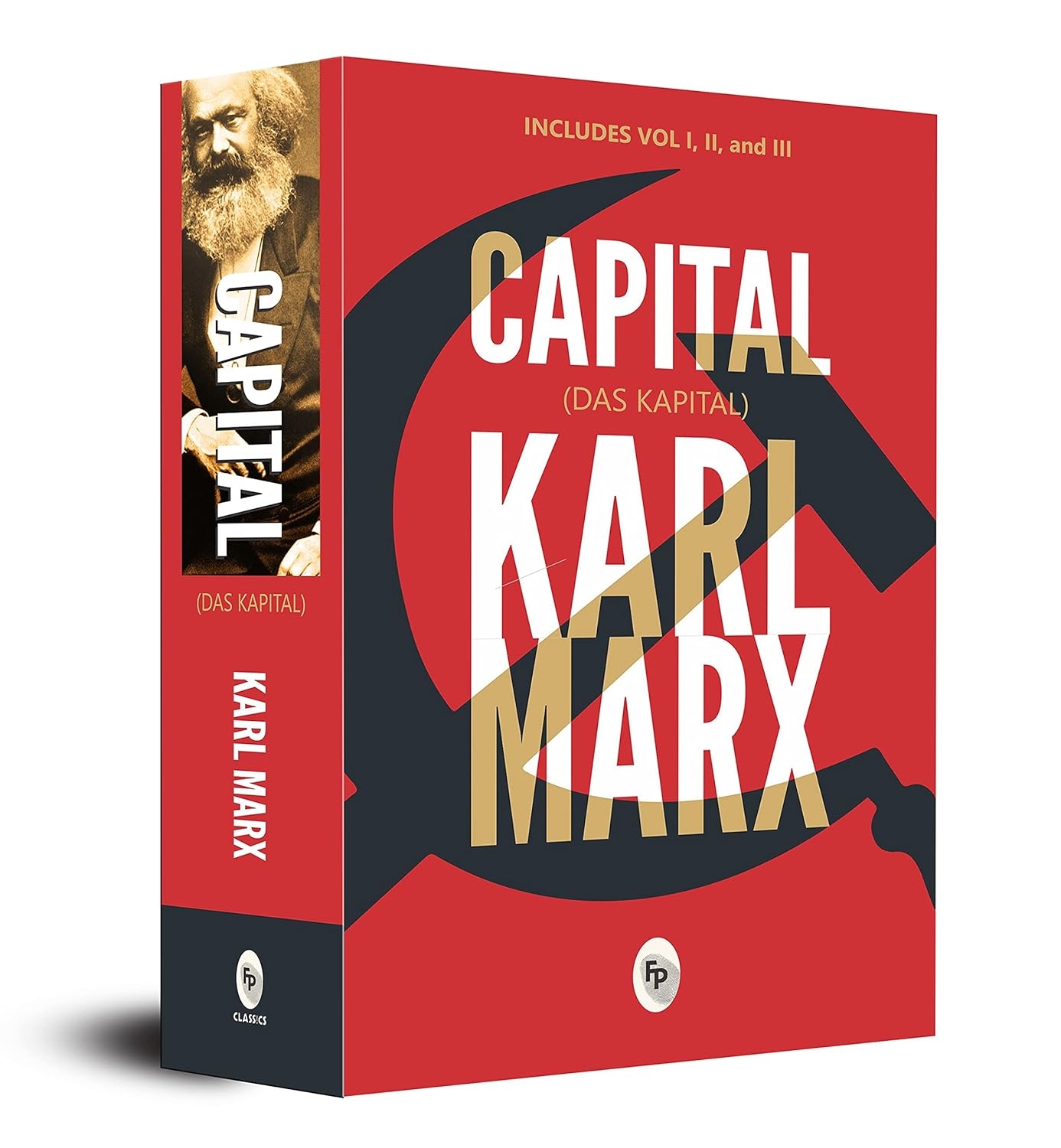

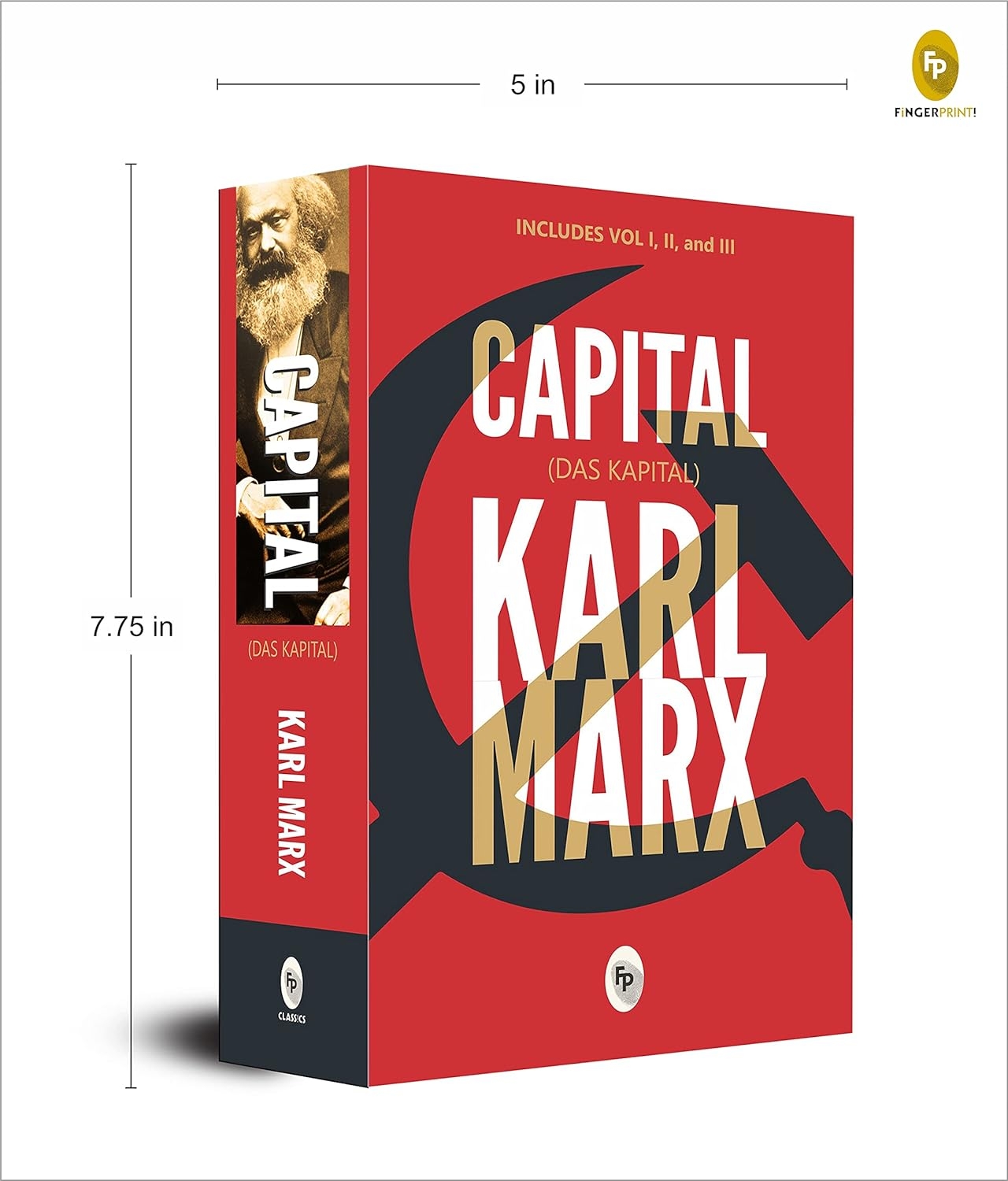
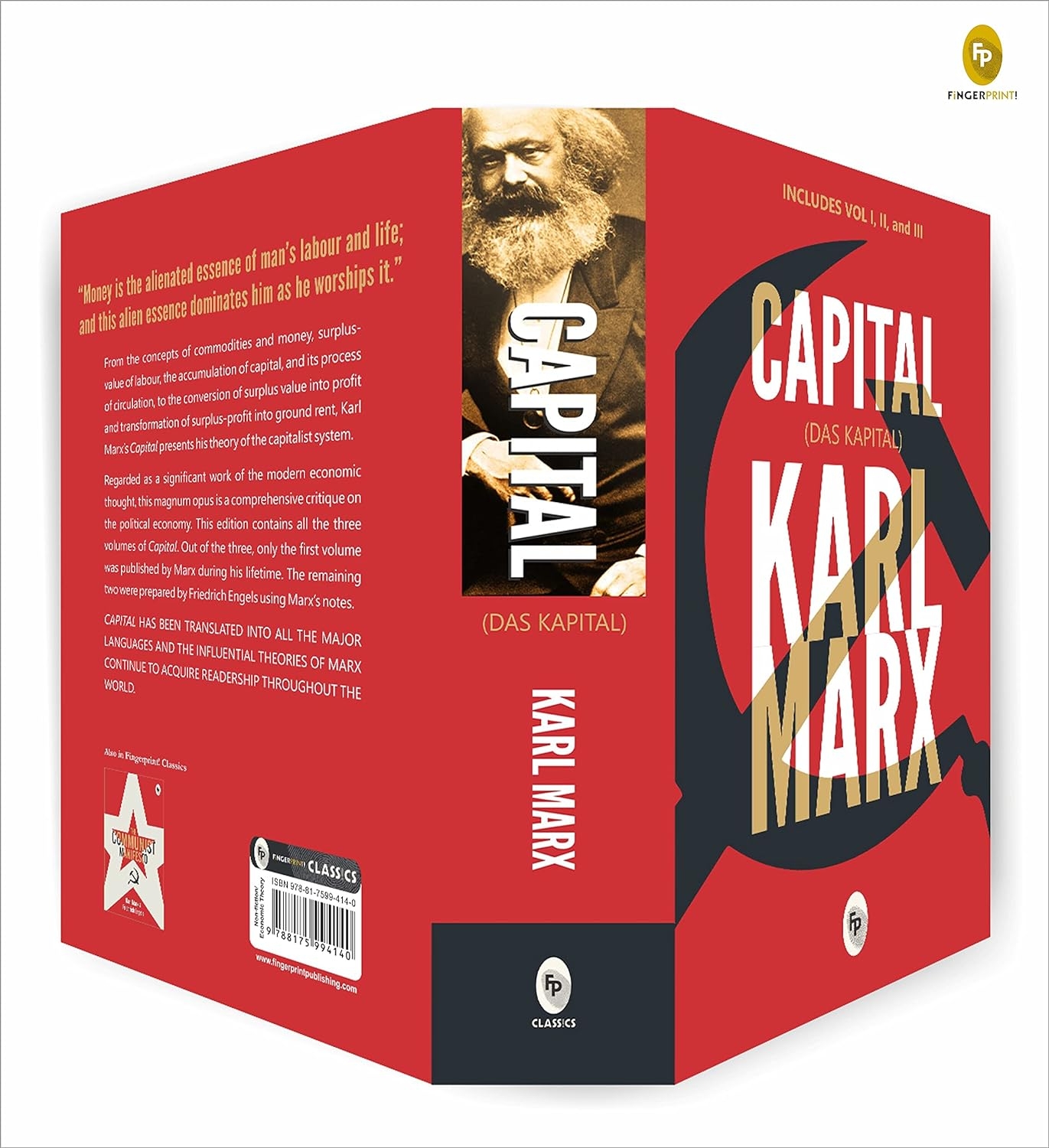
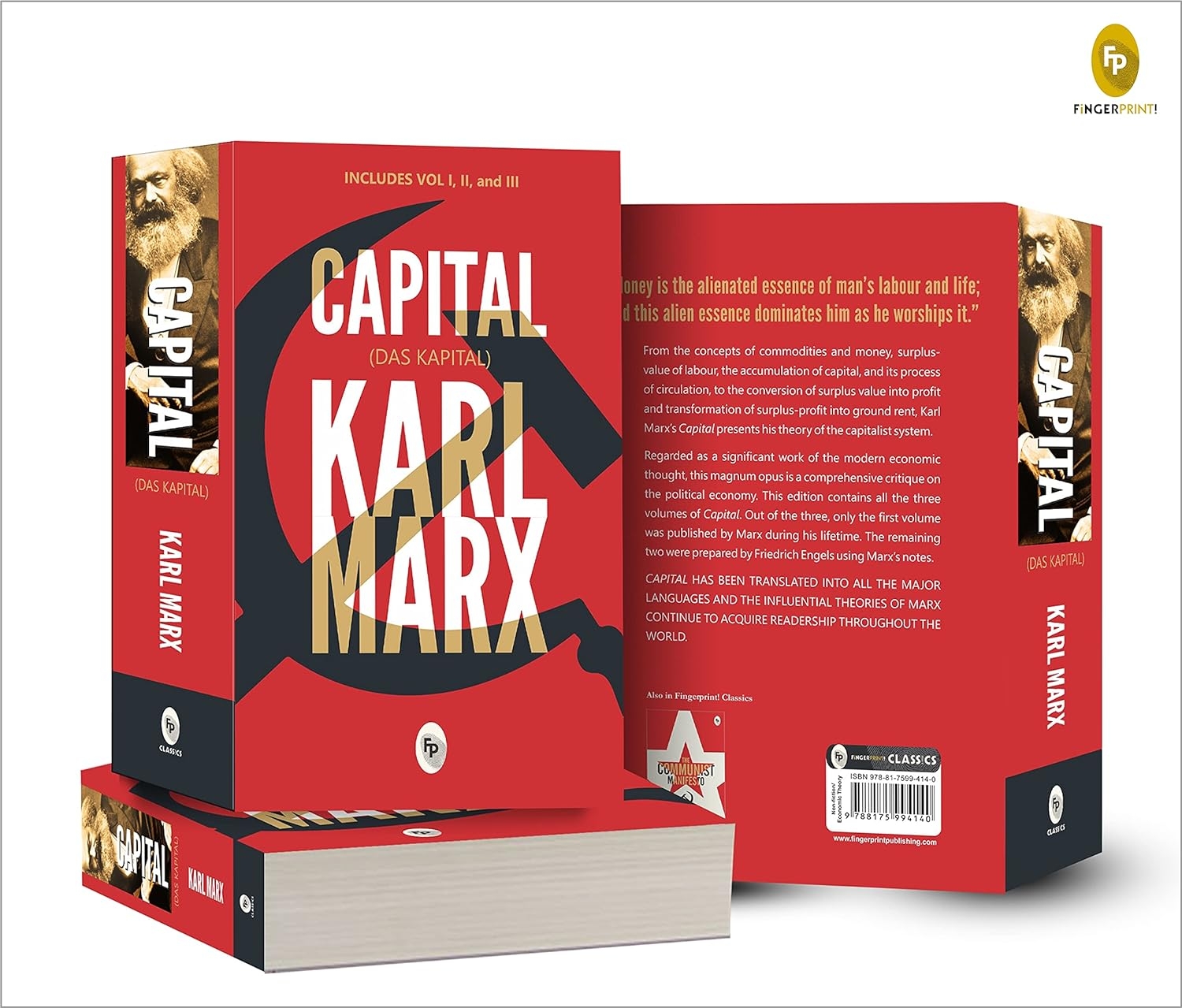
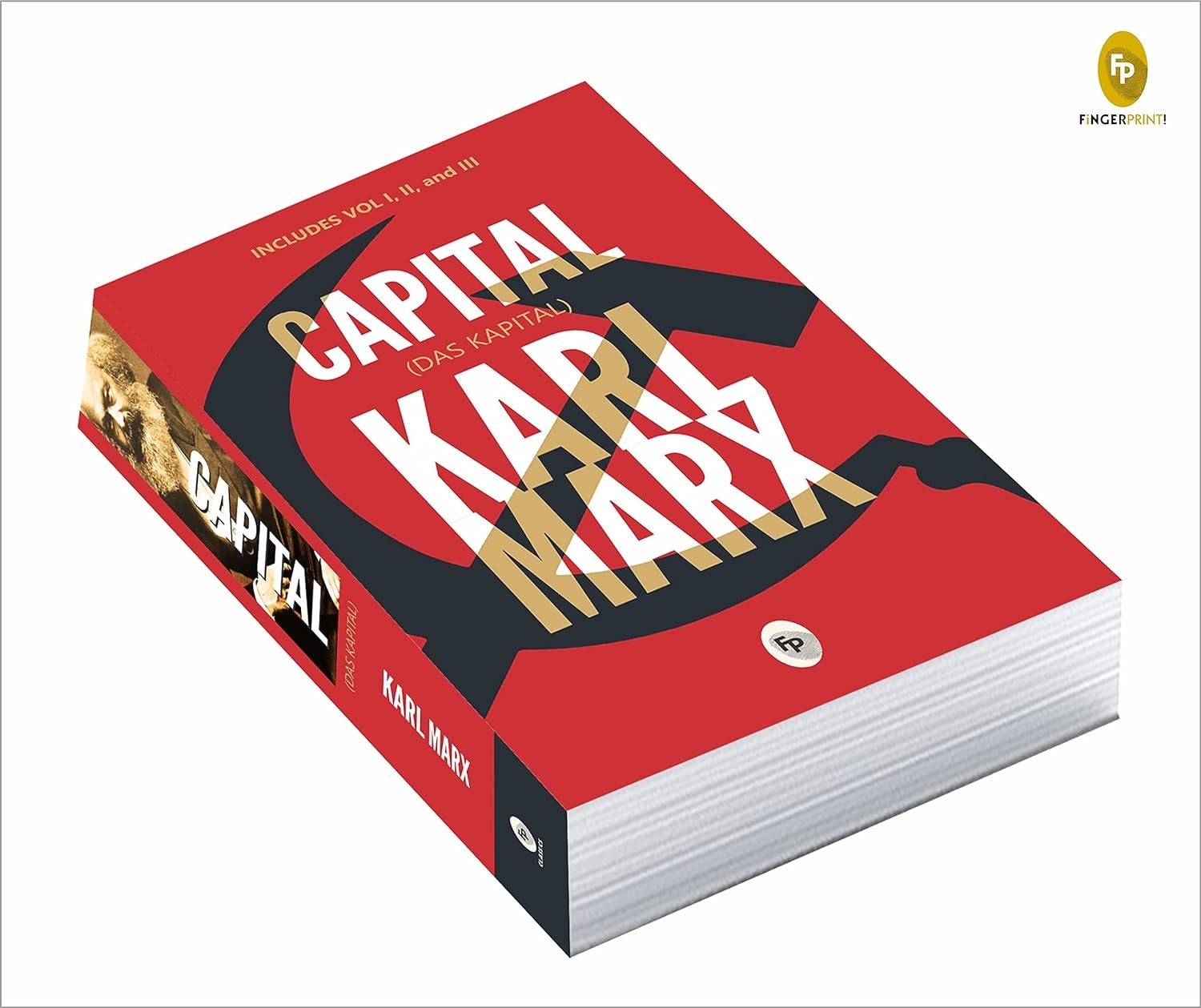
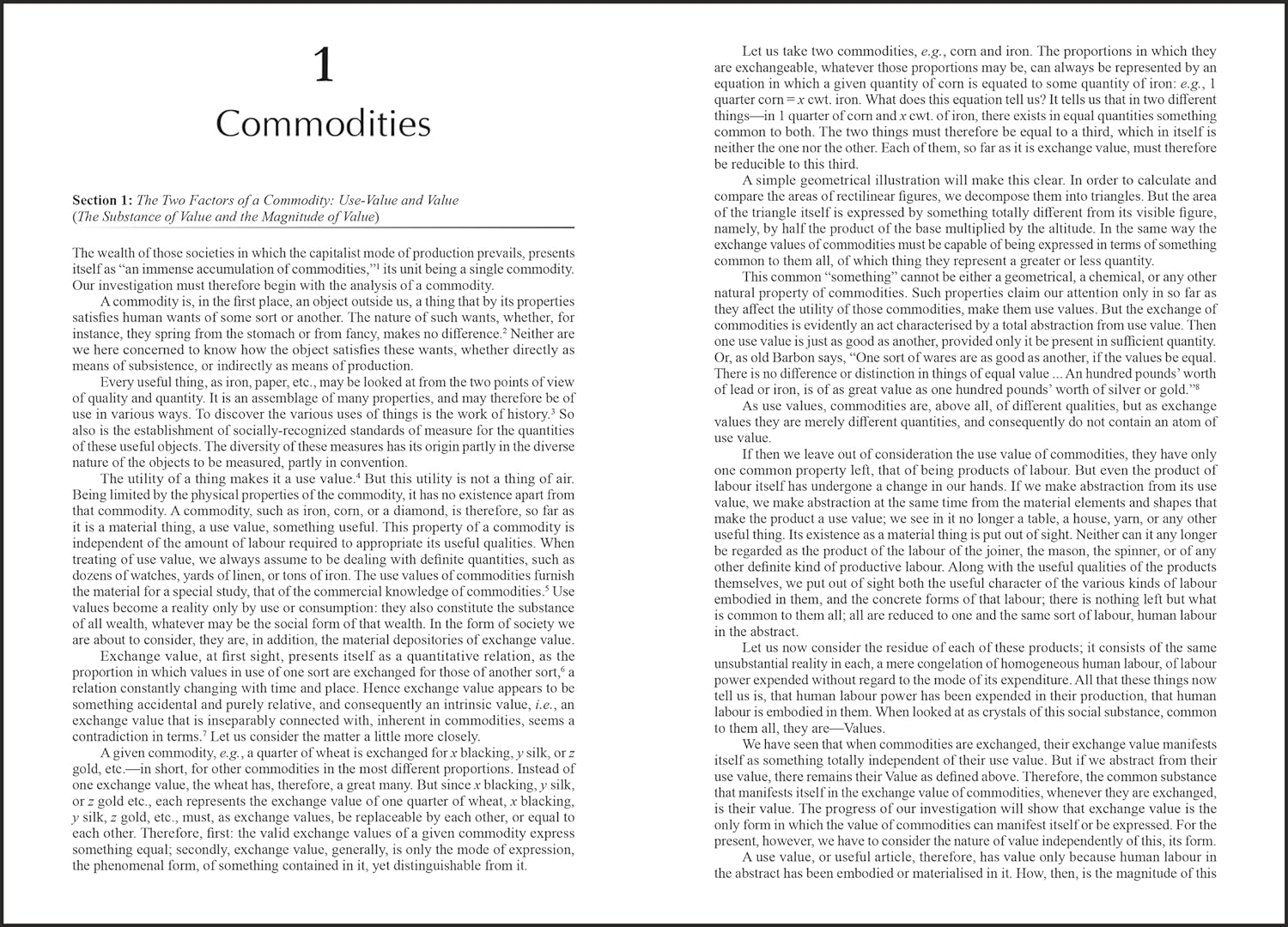










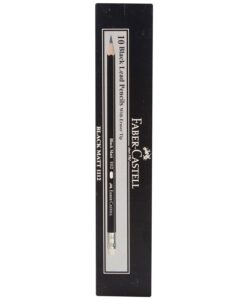
mirza mansoor murtuza –
Happy to get great work on affordable price
RAVINDRANATH JANDHYALA –
As I am going through volume one this book, I find the anatomy of exploitation in capitalism and also how it historically affected the labour starting from working hours, conditions and in their physical and mental health. An enlightening work based on history of industrial growth. Surplus value theory stands abiding. Ofcourse, it has historical limitations. Lenin’s” Imperialism, the highest stage of capitalism” also needs to be read and other later theorists who developed Marxist economic theory.But I find the font is too small and strenuous to my eyes. Better go for another edition with better print and larger font.
Somya Shukla –
The ideology which resulted in a hundred million corpses is no less than ‘you know what’. Perchance, it’s pretty flawed (but is there anything that’s perfect though?). I mean, I personally found certain concepts and things to be too utopian for one’s own good, come on mates, utopia does not exist, not according to me atleast, if you’ve seen it prevailing anywhere, please do enlighten me. Long story short, this is a ‘fine’ theory on paper but is pretty immoral in practice, obviously because people weren’t much bothered with “it” growing, but, were rather busy being zealots. But, you should definitely READ THE BOOK because then only then, will you be able to understand as to what you’re dealing with. Marx wasn’t coming from a place of spite neither were his thoughts. He gave what he deemed fine and what he thought was right, but, after all he was a human and humans are bound to be flawed and can make mistakes and can also overlook certain aspects to a particular equation. When he watered the seeds of his ideas he obviously did it to end the differences that existed and still exist in our species and to fill in the wedges, which eventually ended up in a blood bath, well, what can be said about smthng which has not been properly cooked.So, I personally do not agree to most of what this book has to offer.Anyway, do read the book.
Messi the greatest –
Marx gave a lot of theories on the exploitation of labours and how to prevent it .Most of those theories don’t work in today’s economics but the problems of the society about which he tells us still continue to exist.People who say that Marxism failed are wrong.Can you imagine that the whole world is giving opinions about his thoughts.some agree with him and some don’t but it’s his biggest success.don’t hate on communism and read the book first and then give an opinion.give this man his respect cause at least he tried to do something for the wellbeing of labours.great book.
Sahil –
Karl Marx’s Capital can be read as a work of economics, sociology and history. He addresses a myriad of topics, but is most generally trying to present a systematic account of the nature, development, and future of the capitalist system. There is a strong economic focus to this work, and Marx addresses the nature of commodities, wages and the worker-capitalist relationship, among other things. Much of this work tries to show the ways in which workers are exploited by the capitalist mode of production. He also provides a history of past exploitations. Marx argues that the capitalist system is ultimately unstable, because it cannot endlessly sustain profits. Thus, it provides a more technical background to some of his more generally accessible works, like The Communist Manifesto.This study guide focuses on one component of Capital, Marx’s schema of how the capitalist system functions. Marx argues that commodities have both a use-value and an exchange-value, and that their exchange-value is rooted in how much labor-power went into them. While traditionally people bought commodities in order to use them, capitalists use commodities differently. Their final goal is increased profit. Therefore, they put out money and buy commodities, in order to sell those commodities for a profit. The cycle then repeats itself. The reason why the capitalists are able to make a profit is that they only need to pay workers their value (how much it takes to keep them functional), but the workers produce more than that amount in a day. Thus, the workers are exploited. The capitalists are able to do this because they have more power, and control the means of production. Furthermore, the workers’ character is negatively affected by the system. They don’t own the products of their labor, and the repetitive work they have to do makes them little more than machines.Marx presents several definitions that will be important throughout his work, so it is very important to be clear on their meanings. A use-value corresponds to the usefulness of an object, and is internal to that object. For example, a hammer is a use-value because of its contributions to building. Its use-value comes from its usefulness. In contrast, a hammer’s exchange-value comes from its value relative to other objects. For example, a hammer might be worth two screwdrivers. An object doesn’t have an exchange value in itself, but only in its relationship with other objects.However, the fact that the hammer and screwdriver can be exchanged at all suggests that there must be something common between them, some means of comparison. Marx says that this is the object’s value. Value means the amount of labor it takes to make the commodities. This labor theory of value is very important to Marx’s theory. It implies that the price of commodities comes from how much labor was put into them. One implication of this is that objects with natural use-value, such as forests and other natural resources, do not have value because no labor went into them. One problematic question, then, is how such natural resources can have exchange-value (people do spend money on them) without benefiting from labor. It is also important to consider how Marx’s conception of the roots of exchange value differs from modern economic theory. In modern theory, something’s exchange value is rooted in people’s subjective preferences. While the amount of labor required would be linked to the supply curve of a commodity, its exchange value is also determined by the demand curve. Marx focuses exclusively on labor.
Shubham Dattatray londhe –
I first hated communism …I was brainwashed by today’s capitalist and “Democratic” system to the point that Thought it was just another sort of fascism because of comments on internet. So I hated Marx too. But later decided to actually read how and why this communist system is so “deadly”, as I usually don’t just believe on things which we see on internet. And as I started reading it, i swear I couldn’t spend my day without taking it in my hand. In my college, home everywhere I carry this book. I never even thought that I , who firstly hated Marx and his ideology so hard that, would become strong supporter of communism. I finally got communism isn’t fascism, but world we today live is itself “soft” and cold hearted , sort of “pleasant ” fascism which don’t let people know that they r slaves but indirectly makes them so. From exchange of commodities to formation of money, from formation of value to factors affecting it, from ACTUAL EFFECT OF MACHINARY in economics is not to soften human labour as our friendly inventors suggest but it’s effect and use is so brutal on labourers themselves and then finally to history of capital and modern economics , currency… Everything is covered . Its must read for both supporters and non supporters of Marx , to get the actual information of world we live in. Tribute to this great work..
Bill P. –
Marx was rightReally sick of seeing reactionaries who didn’t even read this book give reviews that have nothing to do with its contents.Capital really lays out the relationship between workers and capital and the class struggle that results from it. The contradictions within capitalism are pointed out and apply today.Although some of the language is a bit advanced it isn’t too difficult to get through, it just takes a little time as it is a long book. I’d rather spend my time reading this very logical, reasoned study of economics than a book of the same page length but full of second century fairy tales like the Bible.
High quality, fastest delivery, excellent communication –
More than I expectedA very complex book with a lot of economy theorems. It’s gonna take patience and a notebook
ういんぐ –
電子版は安価で『資本論』を学ぶ者にとって十分参考になる。英語版は、ディーツ版とは章編別に違いがあるが、ディーツ版邦訳の邦訳上の疑問点を確認するには、独語をよく理解できない者にとっては非常に参考になる。ネットで見ることもできるが、電子版なら安価で持ち運びでき、満足している。
Alexis Daniel Iglesias flores –
A little bit damage but still goodGreat book